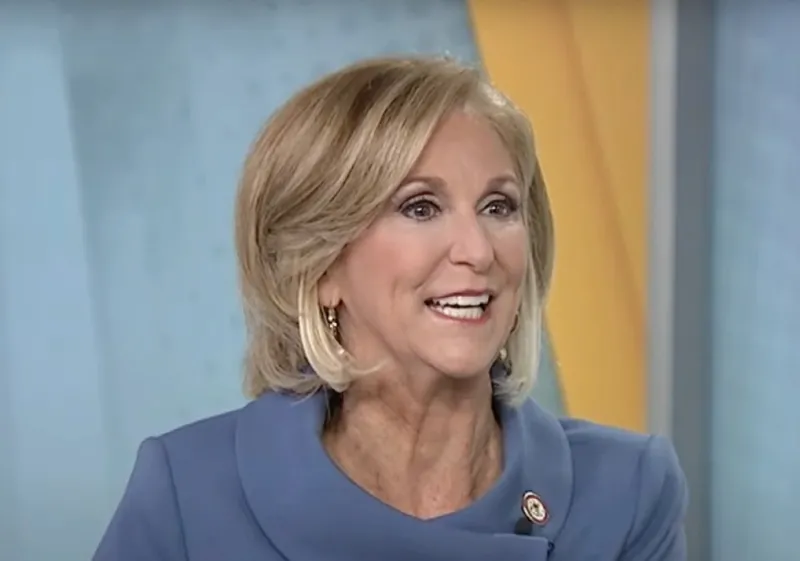 Valerie Huber, the president and CEO of the Institute for Women’s Health, speaks to EWTN Pro-Life Weekly on Thursday, May 23, 2024 / EWTN News
Valerie Huber, the president and CEO of the Institute for Women’s Health, speaks to EWTN Pro-Life Weekly on Thursday, May 23, 2024 / EWTN News
CNA Staff, May 24, 2024 / 08:00 am (CNA).
One woman is working with world leaders to promote women’s health without also submitting to the pro-abortion ideologies that often come with international aid.
President of the Institute for Women’s Health Valerie Huber spoke with EWTN News President Montse Alvarado on “EWTN Pro-Life Weekly” Thursday about current worldwide efforts to support women’s health from conception until death.
Huber founded the institute after completing her service as the first special representative for global women’s health under former President Donald Trump.
“I had the whole world, but only one focus, and that was promoting women’s health,” she told Alvarado about her tenure in public service. “And to ensure that health was not equated with abortion, because it shouldn’t be, and it’s not.”
Since then, through the Institute, Huber has continued her outreach to various nations to encourage them and provide them with support.
For example, Huber recently worked with the first lady of Uganda to launch the Women’s Optimal Health Framework, a new initiative developed with the pro-life government of Guatemala that marks the “first life-affirming, family-strengthening framework that ministries of health can use in these countries to affirm every life.”
“It’s looking holistically at helping a woman receive optimal health,” Huber said. “That’s not just physical health. It’s emotional health. It’s intellectual health, [it’s] physical health, it’s spiritual health,” she said.
“There’s not another framework that takes these elements, empowers a government and literally empowers a woman and a girl at that community level to have opportunities that she has not had in the past.”
Huber noted that many countries are pressured to promote abortion ideology or else their aid will be taken away.
“What we want to be as the Institute for Women’s Health is that encourager that not only encourages them to stand but gives them the tools and the resources so they can stand,” she said.
This can be a challenge when many U.S. allies equate women’s health with abortion, Huber said.
“When I was special representative for global women’s health, I saw that women’s health had experienced a devolution where women’s health was being equated with abortion,” Huber said. “It’s just not true. It’s very limiting. It’s a narrative that leaves women who are dying every day behind with no assistance for anything else.”
“Our goal really was to put the focus where it should be, and that is: look at those authentically vulnerable women and girls in countries around the world to which the United States provides foreign assistance, other countries provide foreign assistance.”
When she proposed during the Trump administration that other nations work with the U.S. to address “unsolved conditions” for women worldwide, she found that no countries would “agree to leave abortion out of that equation in order to promote women’s health.”
“I saw that even though at that time, the U.S. administration was very pro-life, many of our traditional allies were not,” she said. “What did that tell me? It told me that the priority was not really helping the women who needed help. It was promoting ideology above women’s health, and actually that women were being used as a vehicle for ideology.”
“It was based on that that I started having conversations with countries that were pro-life, pro-family, that wanted to make genuine improvements to the health of their women and girls,” she continued. “But they were being held back by these conditions that were standing in the way.”
During her time as a representative, she united the U.S. with Brazil, Egypt, Hungary, Indonesia, and Uganda and numerous other countries by initiating the Geneva Consensus Declaration, which stipulated several pro-family principles and rejected the premise of a “human right” to abortion.
Representatives from 37 different nations have signed the declaration, including Sudan, Kenya, Saudi Arabia, Paraguay, and Poland.
The declaration upheld several principles, Huber noted, including that “the family is foundational to society,” that “there is no international right to abortion; it’s not a human right,” and that “the sovereign right of countries to defend life, family, and women’s health with their own laws and not have external meddling, forcing them or pressuring them to change.”
“It created a coalition of nations that said, regardless of where we are, we commit to improve health and thriving for women and girls,” she said.
[…]





